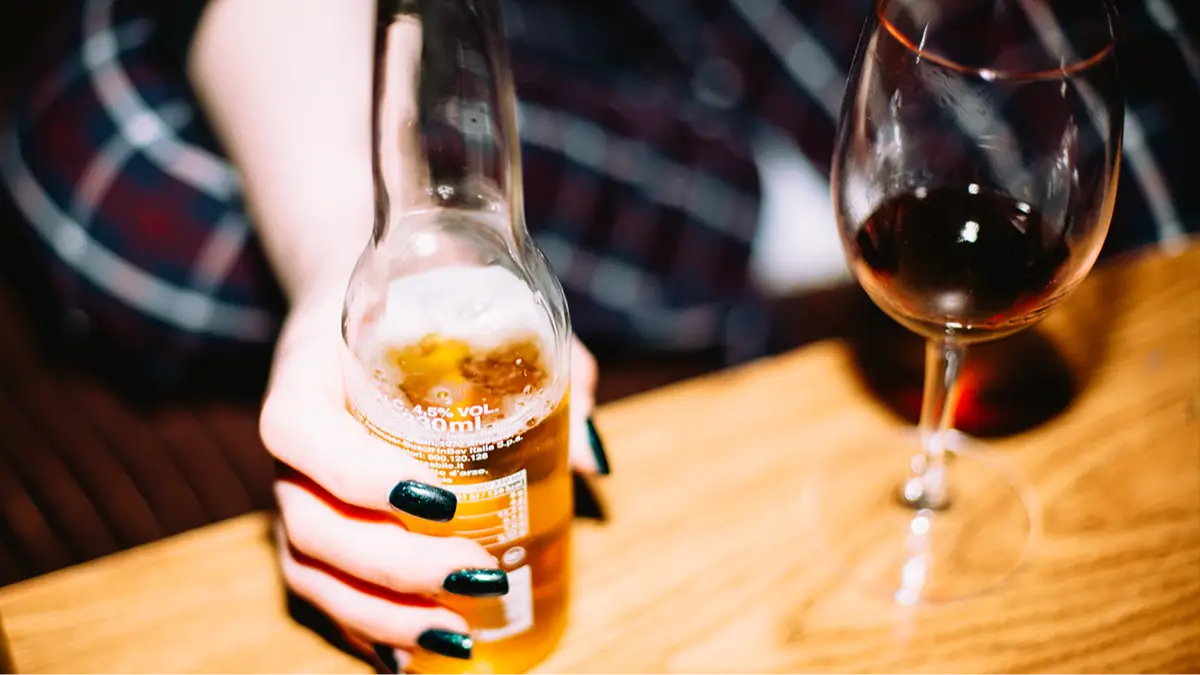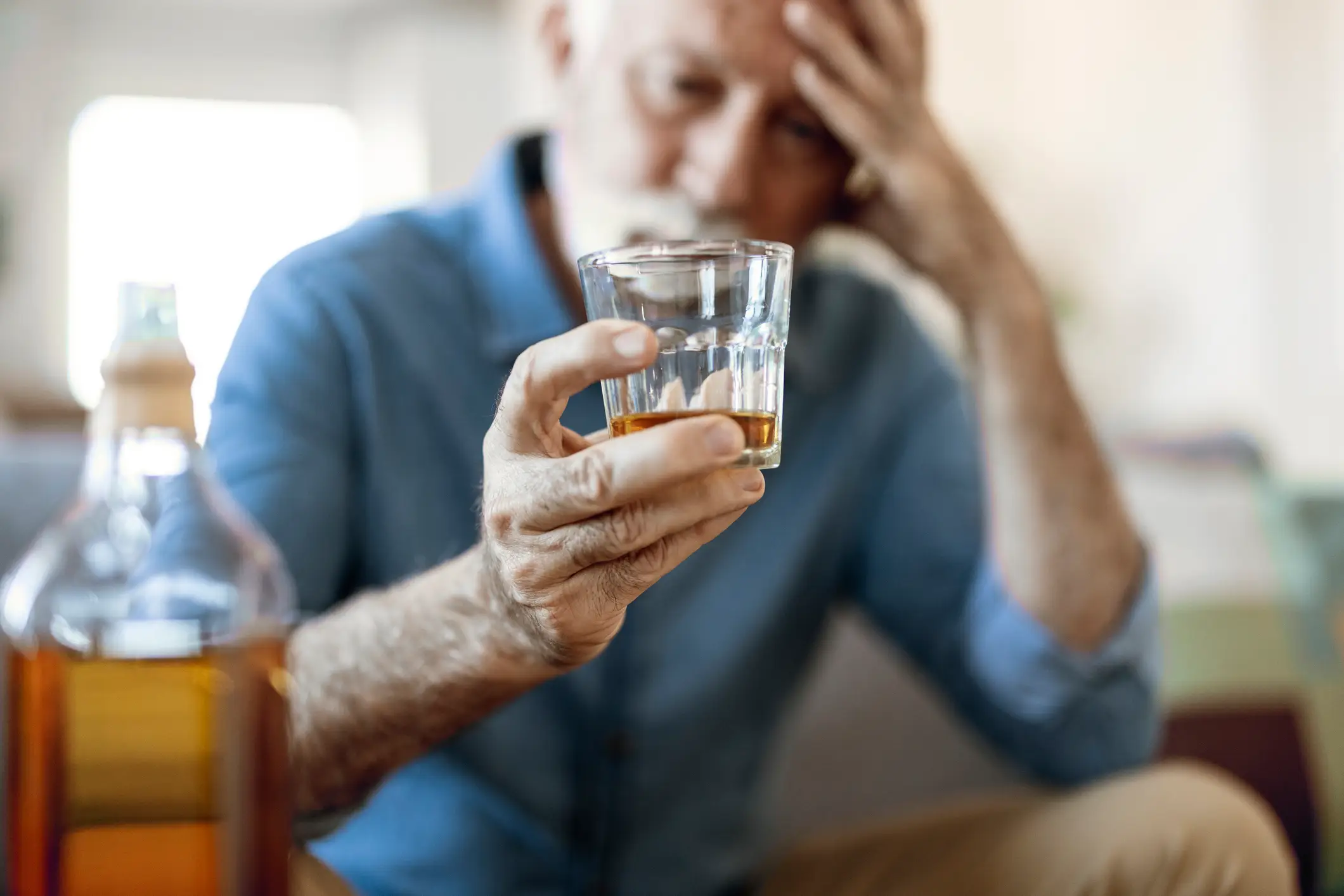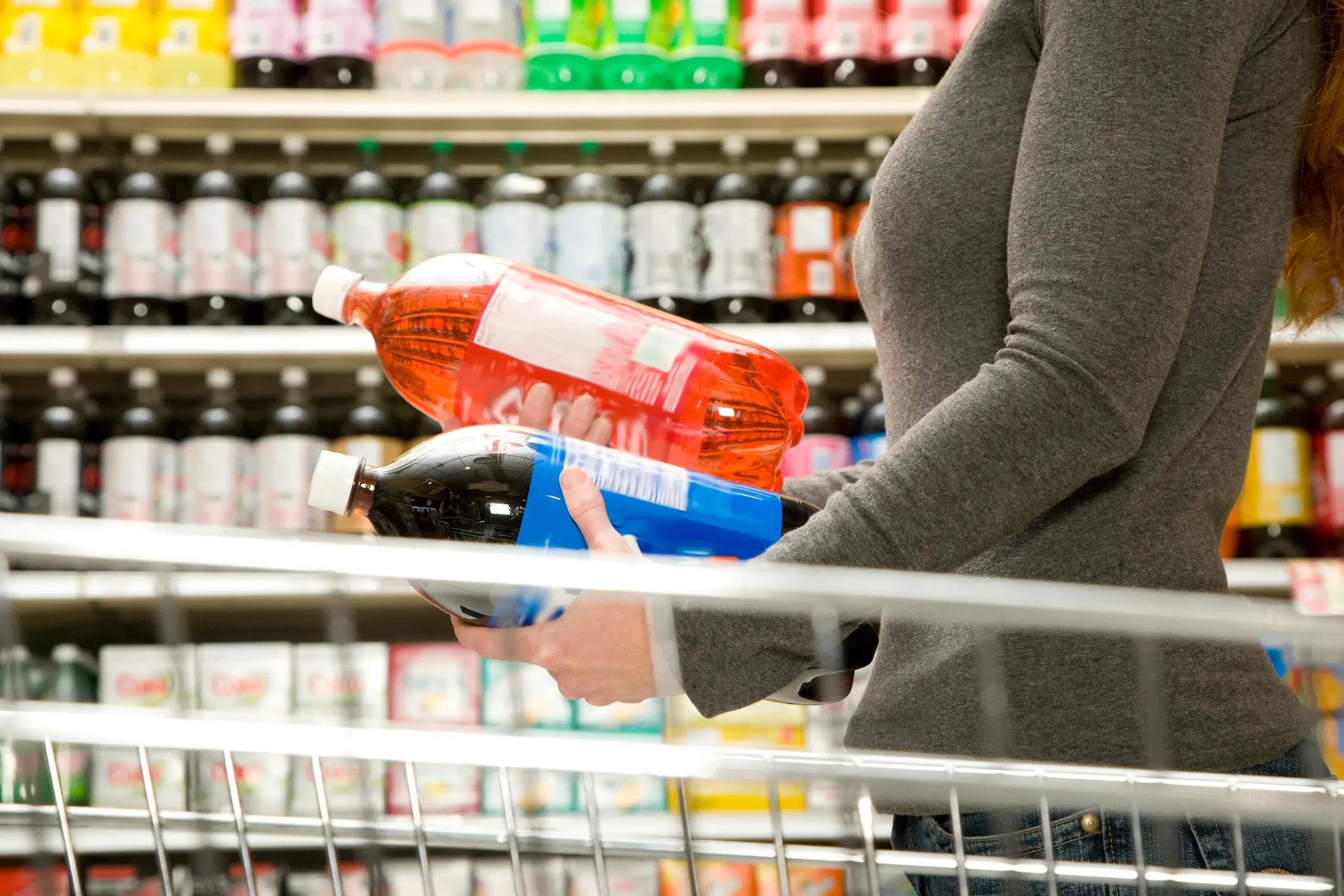
Warning: This article contains discussion of cancer which some readers may find distressing.
Researchers believe they have determined the exact number of alcoholic beverages that if consumed daily could be fatal.
In the last 30 years, the chances of young adults - aged between 20 and 39 - in the US developing colorectal cancer (cancer of the intestines, colon and rectum) has increased by two percent each year, according to the Cancer Research Institute.
This year, American Cancer Society estimates that as many as 107,320 residents in the US will be diagnosed with specifically colon cancer - broken down, it anticipates 54,510 men and 52,810 women to receive the devastating news.
Advert
The World Health Organization (WHO) has been clear in its belief that no level of alcohol consumption is safe, and that risks start from the first drop - due to it being a known carcinogen.

That belief is backed up by numerous studies, as well as countless experts - including Dr Cedrek McFadden, of South Carolina.
McFadden is a leading colorectal surgeon and has warned of the dangers of indulging in socially acceptable night caps.
"From a cancer prevention standpoint, no amount of alcohol is considered entirely safe," he told the Daily Mail.
Now, research published by the WHO has detailed that the chances of developing colorectal cancer increases by almost 40 percent from daily consumption of just two alcoholic drinks a day.
That's for men, for women just one daily alcoholic drink can greatly expose consumers of developing colorectal cancer, as well as breast cancer.
“We cannot talk about a so-called safe level of alcohol use. It doesn’t matter how much you drink - the risk to the drinker’s health starts from the first drop of any alcoholic beverage," Dr Carina Ferreira-Borges, of the WHO, explained.

"The only thing that we can say for sure is that the more you drink, the more harmful it is – or, in other words, the less you drink, the safer it is."
Ferreira-Borges, who specializes in disease management and works as an advisor for alcohol in Europe, continued: "We need cancer-related health information messages on labels of alcoholic beverages, following the example of tobacco products; we need empowered and trained health professionals who would feel comfortable to inform their patients about alcohol and cancer risk; and we need overall wide awareness of this topic in countries and communities."
However, it isn't just alcohol that is causing the increase in this specific type of the deadly disease, but doctors believe it is also linked to processed meats and even sugary drinks.
Interestingly, the American Cancer Society notes that there has been a decline in colorectal cancer patients aged 65 and older, from 1998 to 2019.

Medical oncologist, Dr Emma Schatoff, of New York City's Memorial Sloan Kettering Cancer Center, explained that a paper she released indicates that sugary drinks were the leading cause in young colorectal cancer patients.
"Young people were coming in with metastatic disease, or cancer that had spread everywhere - it was in their liver, lungs, other organs - and they were very surprised," she told the Daily Mail.
"We looked at anything that could have raised their risk level. We looked at inflammatory bowel disease and medication use, but found no difference there.
"Then we looked at diet, and found no link with processed foods or red meat. But we did find a link with high sugar foods in stage four patients diagnosed with the disease for the first time."
Adding: "We defined a high sugar diet as daily consumption of high sugar foods, such as a [single] soda or a candy."
If you’ve been affected by any of these issues and want to speak to someone in confidence, contact the American Cancer Society on 1-800-227-2345 or via their live chat feature, available 24/7 every day of the year.